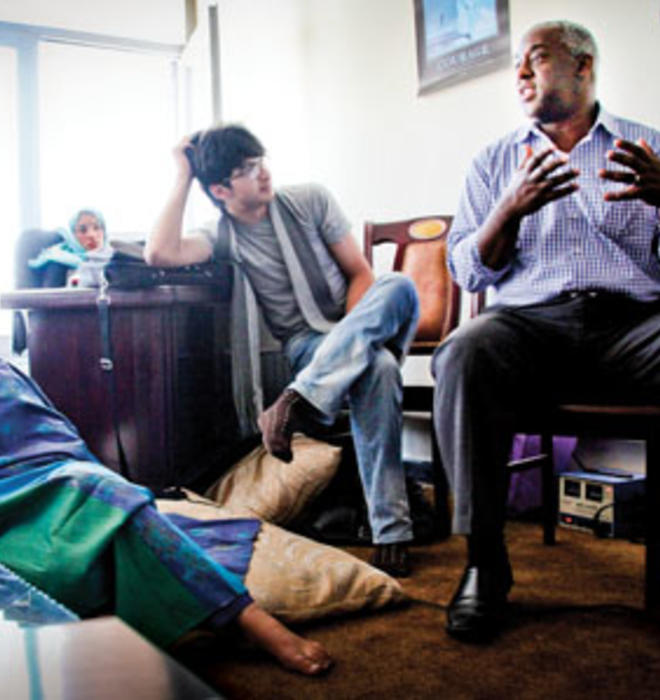
James Blue ’91: Training Afghan Journalists
As a television producer, James Blue ’91 visited the major war zones of the last two decades. It was the people of Afghanistan who captured his heart. So when the opportunity came to return to the country last year, Blue jumped.
Blue began a video-training program, Afghan Voices, which is funded by the U.S. Embassy in Kabul but editorially independent. The program teaches Western-style reporting and documentary filmmaking to young Afghan men and women; so far, the 15 students have produced a handful of films, some of which will be shown at a London film festival this month.
“A lot of Western journalists come to Afghanistan for just a short period of time,” Blue says. “We wanted to create a cadre of talented Afghans to tell some of the stories that we, as Western journalists, might not have access to.”
One student reported on how Gucci and other fashion labels are making a comeback, now that the Taliban no longer control the streets. Another explored the capital’s massive congestion problems, now that more Afghans have cars. A third looked at pets. “We have this view that life under the Taliban was completely without any type of diversion,” Blue says. “But clearly, to survive that type of life, the Afghans had to have something to keep them going. Their devotion to their pets was one of those things. It’s a story a Western journalist would be hard-pressed to find.”
After graduating from Princeton, Blue headed first to NBC’s Today Show, then to ABC. He followed Nightline anchor Ted Koppel to the Discovery Channel in 2006. In 2008, he struck out on his own. Blue’s company, Public Affairs Media Group, produces material for the PBS News Hour, UNICEF, and the Gates Foundation, and he’s working on a documentary about his students’ lives.
The Afghan students are as tech-savvy as their Western peers, Blue says. More difficult has been teaching them the kind of critical thinking Western journalists take for granted. “We had to push the students to understand that our role is to try to reveal, explain, and create a way for people to understand why things are happening,” Blue says. “That’s not part of their culture.”
There have been other challenges as well. One student’s family won’t let her roam around freely, so she does interviews in libraries. Another wears a burka when she goes out to report.
The future for the students, aged 16 to 22, is uncertain. Funding for Afghan Voices ends this fall, though Blue hopes to keep it running.






No responses yet